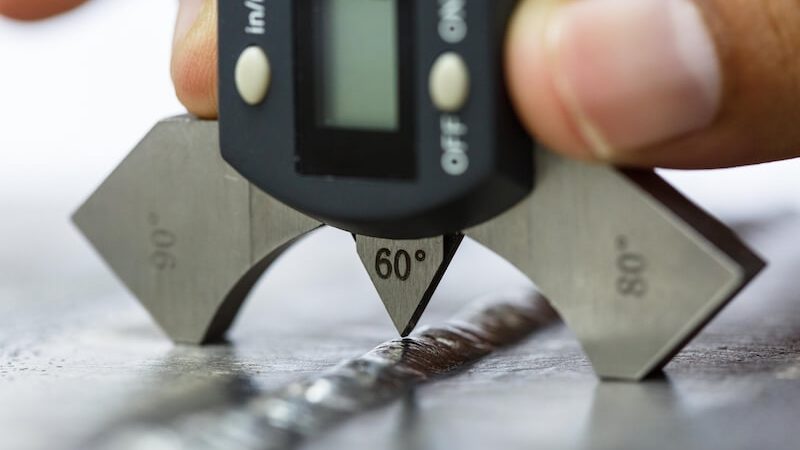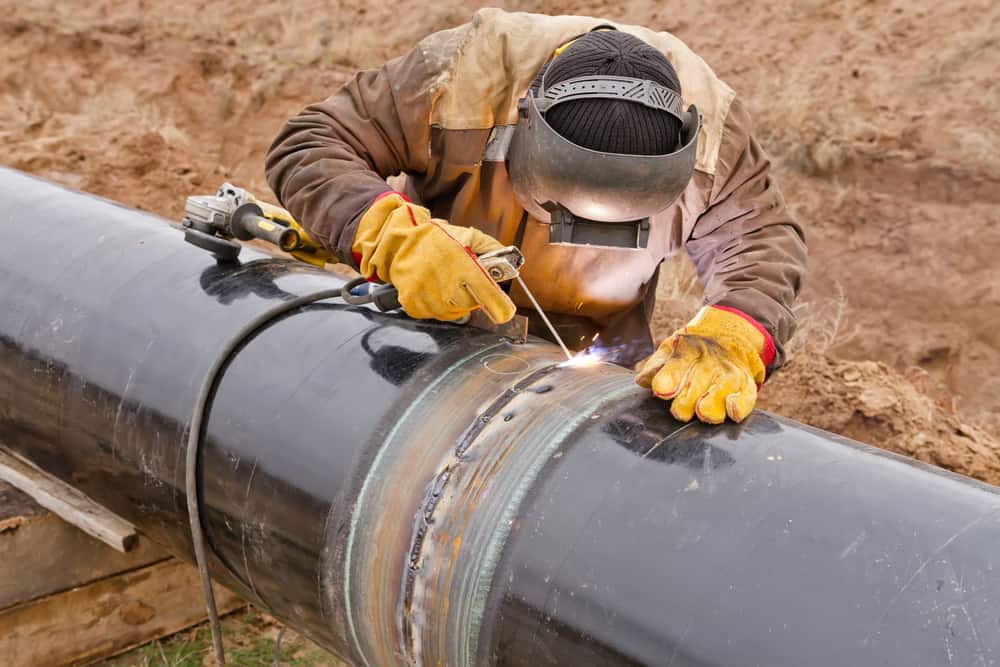The Ultimate Checklist for Welding Inspection Gilbert Arizona: Ensuring Safety and Accuracy
The Ultimate Checklist for Welding Inspection Gilbert Arizona: Ensuring Safety and Accuracy
Blog Article
The Effect of Rigorous Welding Examination on Sector Standards: Supporting Security, Integrity, and Compliance Throughout Various Sectors
The function of strenuous welding examination is significantly acknowledged as an important element in boosting industry standards, where conformity, safety, and dependability take precedence throughout diverse industries. What improvements might we expect in welding methodologies as the demand for top quality and security magnifies?
Relevance of Welding Assessments
Identifying the critical duty of welding assessments in keeping high quality and safety and security requirements, industry experts focus on these examinations to guarantee structural stability. Welding examinations act as a vital checkpoint in the fabrication procedure, identifying problems that might jeopardize the resilience and security of welded frameworks. By methodically examining welds, examiners can find concerns such as insufficient infiltration, porosity, and cracks, which might not be noticeable to the nude eye.
The value of these assessments extends past plain conformity; they are important for securing lives and shielding financial investments. In essential markets such as building, manufacturing, and aerospace, a single faulty weld can bring about devastating failures, resulting in both monetary loss and human casualties. Consequently, implementing extensive examination protocols alleviates these threats and enhances overall task integrity.
In addition, regular welding inspections foster a society of high quality across organizations, encouraging welders to abide by finest methods and maintain high criteria in their work. This commitment to quality not only enhances functional effectiveness but additionally strengthens the online reputation of firms within their particular markets. Hence, welding inspections are crucial in advertising safety, integrity, and compliance throughout numerous industries.
Trick Sector Specifications and Rules
The framework of welding assessments is underpinned by a durable collection of market criteria and policies that control practices across numerous sectors. Secret institutions, such as the American Welding Culture (AWS) and the International Organization for Standardization (ISO), develop guidelines that make sure quality and security in welding procedures. AWS D1.1 describes necessary demands for welding steel structures, while ISO 3834 specifies high quality requirements for blend welding.
In addition to these specific standards, industry laws like the American National Requirement Institute (ANSI) and Occupational Security and Health Management (OSHA) mandates better enhance compliance by setting safety protocols and functional finest techniques. These guidelines are crucial in sectors such as aerospace, building, and manufacturing, where welding honesty is critical.
Additionally, sector-specific standards, such as those from the American Culture of Mechanical Engineers (ASME) for pressure vessels, provide added layers of analysis to ensure that welds meet stringent security and efficiency requirements. Adherence to these criteria not only helps with governing conformity but also fosters a culture of top quality and integrity throughout the welding industry, eventually securing public well-being and enhancing functional performance.

Benefits of Conformity and Integrity
Constantly sticking to market standards and regulations in welding inspections returns significant benefits, boosting overall integrity and performance. The foremost advantage is the guarantee of top quality in welded joints, which straight adds to the security of frameworks and tools. Compliance with well established criteria decreases the danger of failing and devastating events, therefore safeguarding both human life and valuable properties.
Moreover, organizations that focus on rigorous welding examinations promote a society of liability and professionalism and reliability. This commitment not just bolsters the reputation of the company but also instills confidence in stakeholders and clients concerning the honesty of product or services. Dependable welding procedures cause minimized expenses connected with rework, repair work, and potential lawful responsibilities coming from poor handiwork.
Furthermore, preserving compliance with industry requirements facilitates smoother governing interactions, as organizations can Clicking Here conveniently demonstrate adherence to necessary procedures (Welding Inspection Gilbert Arizona). This positive strategy can bring about helpful partnerships and chances within the sector, along with accessibility to brand-new markets
Challenges in Welding Assessment
Browsing the intricacies of welding assessment presents a myriad of obstacles that can prevent conformity with market criteria. One considerable barrier is the variability in examination methods and innovations. Various industries may use diverse techniques, leading to disparities in the evaluation of weld high quality. The lack of standard training for examiners can result in diverse interpretations of examination criteria, which might jeopardize security and dependability.
An additional difficulty lies in the accessibility of advanced inspection tools - Welding Inspection Gilbert Arizona. While innovations such as ultrasonic screening and radiography can enhance discovery abilities, their application may be restricted by price or schedule, specifically in smaller sized operations. This variation can cause a reliance on less efficient evaluation approaches, increasing the danger of undiscovered defects
Furthermore, the hectic nature of modern manufacturing often stress inspectors to prioritize rate over thoroughness, possibly neglecting vital flaws. Finally, governing compliance can be discouraging as a result of the developing nature of sector requirements, leaving companies struggling to stay on top of the latest needs. These difficulties demand constant enhancement in examination techniques to guarantee the honesty of bonded frameworks across different fields.
Future Trends in Welding Practices
Arising innovations and evolving methodologies are set to change welding techniques in the coming years. Developments in automation, such as robotic welding systems, are acquiring grip, improving precision and performance while decreasing human mistake. These systems will certainly not only accelerate manufacturing however also promote constant quality assurance, addressing several of the challenges encountered in manual welding.
Furthermore, the integration of expert system (AI) and device learning right into welding processes is poised to revolutionize inspection and monitoring. Real-time data analytics will make it possible for anticipating maintenance, enabling positive interventions that reduce downtime and increase security. In addition, boosted reality (AR) and digital fact (VR) technologies are becoming critical in training welders, supplying immersive experiences that improve ability advancement without the dangers connected with traditional techniques.
Sustainability is likewise an essential trend, as markets look for greener methods. The fostering of environmentally friendly materials and methods, alongside energy-efficient equipment, will likely become conventional. As markets adjust to these changes, the focus will move towards higher conformity with safety and security and ecological guidelines, guaranteeing that welding techniques not only meet existing criteria but additionally lead the means for a more secure and more sustainable future.

Conclusion
In conclusion, rigorous welding inspections significantly boost go to website market criteria by making sure security, reliability, and conformity across numerous markets. As industries continue to prioritize functional honesty, the value of complete examinations will just boost, eventually benefiting organizations and society at large.
The function of strenuous welding examination is progressively identified as a vital element in boosting industry criteria, where safety and security, compliance, and integrity take precedence across varied markets. Therefore, welding evaluations are indispensable in promoting safety and security, dependability, and conformity throughout numerous markets.
Secret establishments, such as the American Welding Society (AWS) and the International Company for Standardization (ISO), develop guidelines that ensure high quality sites and security in welding operations. AWS D1.1 outlines important demands for welding steel structures, while ISO 3834 defines high quality requirements for combination welding.
In verdict, rigorous welding examinations considerably boost sector requirements by guaranteeing safety and security, integrity, and compliance across numerous industries.
Report this page